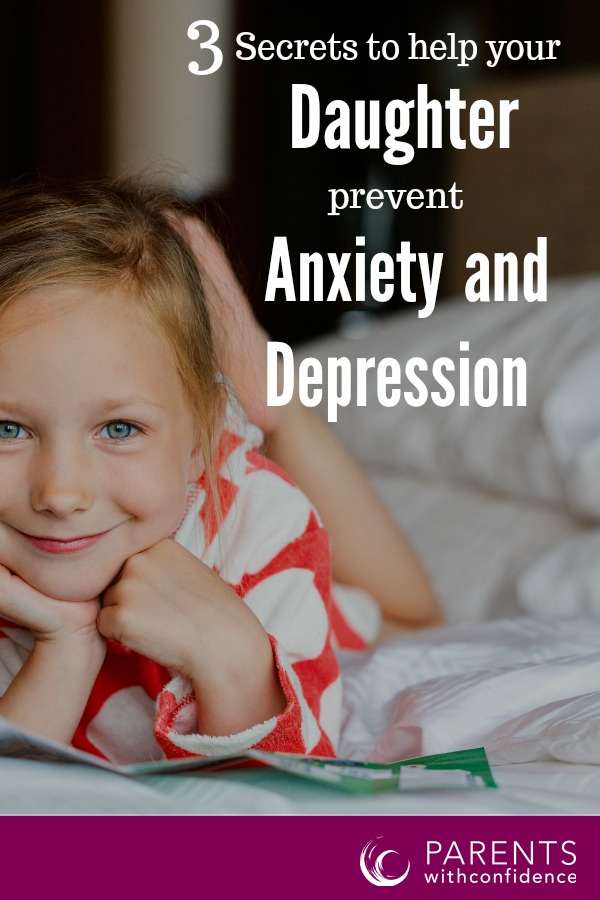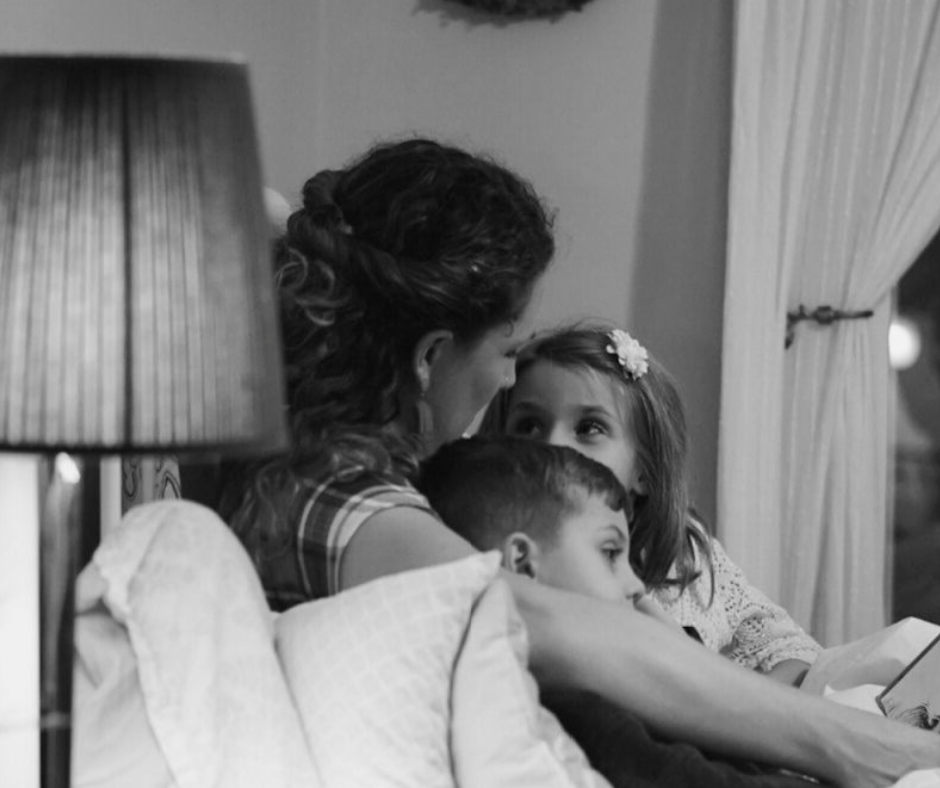What your Daughter Needs you to Know About her Emotions
Inside: Learn 3 factors essential for raising a daughter who has the ability to cope with emotions in a healthy and productive way.

The messages are utterly confusing and start from a surprisingly young age.
“Don’t cry!”
“You’ll be fine”
“Don’t be such a drama queen”
Our culture is not known for its tolerance of emotion. After all, emotions can be loud. Emotions can be messy, and emotions can be challenging.
Look no further than your neighborhood park to observe the overt discomfort parents display in response to a small child’s expression of emotion.
If you are a young female, odds are, you are caught up in this crossfire of contradictory messages in more ways than one.
Why the focus on girls? Because of statistics.
We have reason for concern that the chronic avoidance and minimization of feelings is of particular detriment to our girls in certain regards, as research has long indicated that girls are significantly more likely to develop an anxiety disorder and have rates of depression in adolescence that are two times greater than males. They also struggle with a myriad of complex dynamics in their social development.
Rachel Simmons, author of the bestselling book ‘The Curse of the Good Girl” writes,
“We have long assumed that just because girls have lots of emotions, they must be good at managing them. If we allow myths about their emotional aptitudes to influence parenting and teaching, we overlook a gaping hole in girls’ development.”
Gaping hole indeed. We continue to observe girls struggling to identify, accept, and properly cope with challenging emotions, and in fact, many times actually see them ignoring, minimizing, and devaluing their feelings.
So what is the key to avoiding the path of anxiety and depression for your daughter?
Emotional intelligence, or the ability to understand and manage our emotions, is a strong predictor of future success and well-being. When we make this a priority for our daughters, we start to lay the groundwork for emotional competence and healthy coping skills.
Let’s talk about 3 ways parents can make a huge difference in their daughter’s emotional lives, by laying the foundations of emotional intelligence.
There are no bad emotions
There is perhaps nothing more universal among humans than emotion. Our feelings are a part of us, and to shut ourselves off from certain emotions is to shut off a part of ourselves, creating a dangerous recipe for stuffing (or internalizing) our feelings.
Yet from a young age, girls learn that complicated feelings such as anger and jealousy seem to be off-limits and looked at as negative by adults. This leads to patterns of denying and avoiding our emotions, which is a slippery slope for our girls toward anxiety and depression.
Parents can turn the tides of this pattern by affirming that all feelings are normal and helping their girls gain mastery in the language of emotions.
When our daughters are given the language to identify all their feelings, they are given the power to understand and manage their complicated inner lives.
We know that when we verbally acknowledge an emotion we’re experiencing, it actually sets off a series of neurotransmitters which act as a calming agent to the nervous system.
Pin for later

What can parents do when it comes to teaching acceptance and identification of emotions?
*Stay calm when your child is in the midst of an emotional storm, you are the lifeline they desperately need to get back to shore.
*Remain present throughout their outburst, demonstrating to them that you are there to support them with intense emotions.
*Use books and visuals to help identify and label emotions accurately. Doing so helps girls to develop a wide emotional vocabulary to express themselves with.
*Point out how a powerful feeling is manifesting physically or behaviorally. This helps to cultivate emotional self-awareness, “your eyebrows look so mad!” “Your fists and muscles are very tight!”
>>Related read: How to Raise an Emotionally Intelligent Child that will Succeed in Life
Emotions come and go IF we cope with them successfully
If we were asked to list out our go-to coping strategies when stressed or overwhelmed, the list might range from binge eating our child’s stale Halloween candy all the way to yoga and meditation. The more we know ourselves and how we function under stress – including tendencies, both positive and negative to manage it – the better we can learn to take care of ourselves.
How can parents help when it comes to teaching healthy coping mechanisms?
Starting from young ages, girls learn to tolerate a wide range of emotions through exposure to coping strategies helping them ride out the wave of overwhelming feelings. We know from research that when girls are able to problem solve and access an arsenal of healthy coping tools, they are less likely to engage in unhealthy means of coping: i.e. food, self-harm, drugs to name just a few.
The list of coping and calming techniques is endless and is only limited by what soothes and comforts your daughter’s body, mind, and senses.
Listening to music on headphones
Journaling
Journaling via art in a sketchbook
Reading
Calming scents
Soft blankets or stuffed animals
Stress balls, fidgets or putty
A warm bath, warm drinks, heating pad
Quiet time
Talking
Exercise
Providing the space, materials, and encouragement to your daughter in an effort to help her learn what grounds her while she is young will serve her emotional well-being for life.
Related resource ::: The Calm Kids Set (with everything you need to teach your child to manage their emotions) is 40% off for a limited time!
The power of modeling
Hands down, the most powerful lessons our daughters will learn about coping with their emotions will come from watching the adults in their lives. If parents aim to model healthy coping strategies for their daughters, they must come to terms with their own beliefs and personal narratives around girls and the expression of strong emotions.
How can parents ensure they are modeling healthy attitudes on emotions?
Spending time reflecting on the following questions can help to bring subconscious patterns to light:
Was open expression of emotion tolerated from females around me when I was young?
How were expressions of anger or sadness met in my family?
Am I unintentionally passing on unhealthy messages about emotion?
Am I modeling the coping skills I aim to teach my daughter?
The best thing a parent can do to model and enrich their daughter’s emotional experience is to practice empathy. When we aim to understand and share in her feelings, we demonstrate that her feelings are valid, and thus that she as a human being has validity as well.
Help a girl accept her emotions, help her accept herself.
Raising a daughter in the modern world can feel scary. It’s empowering to know that as parents we may not be able to prepare the road for our daughter, but we can certainly prepare our daughter for the road.
Want more guidance on how to raise an emotionally healthy daughter who will live their best life? I’ve created a free 5-day email parenting course just for you.
Sign up below to gain life-changing insights and strategies on discipline without damage, helping your child manage their emotions and the best way to get your child to listen.
Other articles you’ll love:
75 Awesome Calm Down Strategies for Kids that Work
10 Anxiety Symptoms in Children That Most Parents Miss
Parenting an Angry Child? 10 Possible Reasons Why
10 Simple Everyday Ways to Improve Your Child’s Behavior and Mood
The Best Way to Help a Child Deal with Anger Now (and throughout life)














thank you this was helpful can you put something for boys and adults thank you
Hi Kathleen, I am planning on writing something for boys and emotions very soon. Thanks for the feedback!